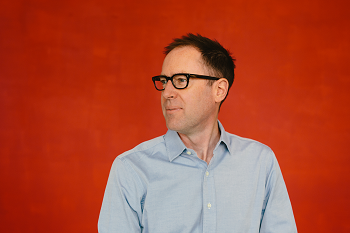
Is There a Fancy Greek Word
Contributor’s Marginalia: Dobby Gibson responding to Catherine Pierce’s “Probably It Will Be Summer Again”
for a title that reveals itself to be the first few words of a poem’s first line? If there isn’t, there should be. In figure skating terms, it’s an in medias res and enjambment combination jump, an athletic move that risks jazz hands, risks being caught flicking-the-light-switch-on-and-off before the performance starts. But I’m always going to be partial to a poem begins at full gallop. You just go on your nerve, as Uncle Frank said.
Catherine Pierce’s “Probably It Will Be Summer Again” really gallops! I was on my way by the end of that first line, “…and if it is I’ll swim,” which is so droll, so perfectly in counterbalance to the poem’s opening notes, my God, I sound like someone who writes about wine. What I’m trying to say is: the poem immediately displays an agile intelligence, so I know I can trust it. It’s weaving an argument and unwinding a few strands of it at the same time. I like that sort of unpredictable swerving. It suggests the poem is going to allow me to experience a new and more dexterous kind of thinking.
“Probably It Will Be Summer Again” reminds me of another recent poem I love, “I’m going back to Minnesota where sadness makes sense,” by Danez Smith. Both poems are convention-defying odes, the speakers stubbornly shifting their gazes away from present weathers to praise a distant, imagined ideal. Seasonal chestnuts, these poems are not.
Both poems play around with tense–future (Pierce) and past (Smith). It makes me wonder: Why are poems so often written in present tense? I might be betraying my MFA-in-fiction finishing school detour, but shouldn’t we find this tendency suspicious? Isn’t it rather convenient, all that heightened immediacy, all the time?
I get it: Singing is inherently in the now, and a lyric poem is simply the singer’s score. Still, it makes it all the more refreshing when a poet like Diane Seuss places an entire book of sonnets into past tense. Or here, where Pierce uses the future tense in such a beguiling way, daring us to confront possibilities complicated and bittersweet: an Issa-like longing.
And then there’s the anaphora, which I read like leftover brush marks from the creation process, so inviting and human. This poem is a real conjuring. Reading it reminds me that poets are supposed to conjure. We’re supposed to be shamans, soothsayers, and spellcasters, not academic professionals dutifully gathering in hotel convention centers wearing matching ID lanyards. The speaker of Pierce’s poem is possessed. Isn’t that what we want from poetry, to feel the spirit?
The desperation of “Probably It Will Be Summer Again” speaks to me, speaks to our moment, when even the most common pleasures seem to be such impossibilities. It’s a fantasia, and it’s a kind of manifesto. Probably, is the poem’s lovely refrain, a hedged bet, a lukewarm optimism which any of us would gladly accept, at this point. Those of us who’ve been lucky enough to survive the past couple of years, I don’t know how we did it. I really don’t.
